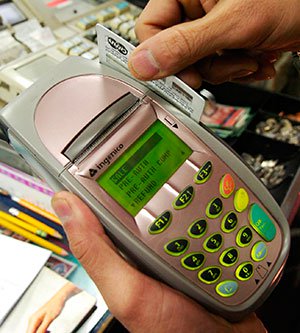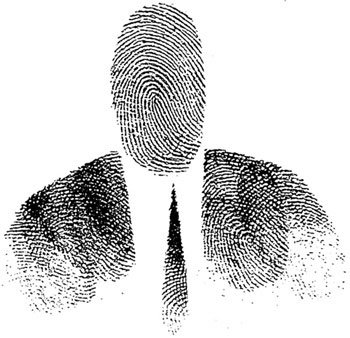Economic Crime Section
The Economic Crime Section investigates Economic Crime, Identity Theft, and Scams involving amounts of $5,000 or more. To report fraudulent activity call Saskatoon Police at 306-975-8300. Incidents of Fraudulent Scams or Identity Theft may also be submitted online using the Saskatoon Police Online Reporting System
General Background

Most frauds are revivals of old schemes that have worked well in the past. The fraudsters may approach the victim in person, by telephone, fax, or over the Internet. This contact is unexpected and the victim often has no prior knowledge of the suspect. They will often pose a situation or a need that the victim was not aware of before the contact.
Most fraudsters or "con-artists" will make themselves out to be expert, legitimate, and/or persons in authority in order to gain the trust of the victim. To lend an air of authenticity to the scam, they will often piggy back their fraud onto a current legitimate business or societal trend that the victim is likely to be aware of.
These individuals who are using modern techniques rely on the same principals as those used in the past. They will insist on going outside "normal" payment routes and will insist that this is urgent, a onetime offer, and that all will be lost if not acted upon immediately. Legitimate companies may put pressure on you, but the deal will likely still be there tomorrow.
Typically the most vulnerable persons in society are also the most susceptible victims to this type of fraud; it is often the poor, desperate, lonely or the elderly that are most at risk.
Protecting Yourself From Fraud

Thousands of Canadians are defrauded each year. The scams come in a number of ways - over the phone, on the internet, or in the mail.
The first line of defense is to be skeptical of any approach that you did not initiate.
Remember: "If it sounds too good to be true..."
Do not bow to time pressure imposed by the individual - any legitimate deal will be there tomorrow. Take steps to guard your personal information at all times - do not give it out over the phone or the Internet unless you are 100 percent certain of the individual at the other end. You may need to verify the source through other means.
When making purchases over the phone or the Internet, take the time to verify the source of the communication through a third party. Most websites have a verification service and reporting system - use them. When you are sure of what you are purchasing and where it is located, use one of the established, third party payment companies. They are bonded and may assist you if you are cheated. If the seller insists on going through a different process (such a wire transfer), then there is a good chance that individual is attempting to defraud you.
Minimize your risk with the following tips.*
- Never send money to someone claiming you've won a prize.
- Before you reveal any personally identifying information, find out how it will be used and if it will be shared.
- Pay attention to your billing cycles. Follow up with creditors if your bills don't arrive on time.
- Guard your mail. Deposit outgoing mail in post office collection boxes or at your local post office. Promptly remove mail from your mailbox after delivery. Ensure mail is forwarded or re-routed if you move, or change your mailing address.
- Utilize passwords on your credit card, bank and phone accounts. Avoid using easily available information like your mother's maiden name, your birth date, and the last four digits of your SIN or your phone number.
- Minimize the identification information and number of cards you carry.
- Do not give out personal information on the phone, through the mail or over the internet unless you have initiated the contact or know whom you're dealing with.
- Give your SIN only when absolutely necessary. Ask to use other types of identifiers when possible.
- Don't carry your SIN card; leave it in a secure place.
*Courtesy of the Canadian Anti-Fraud Centre
Reporting

When you have been defrauded, we recommend that you report the matter immediately to the local police with jurisdiction for where the fraud took place. Many of these frauds are not possible to follow-up in any practical sense; especially those committed over the phone or Internet. Nevertheless, the Saskatoon Police Service has an interest in knowing about these events and would appreciate a timely report from you. Some incidents of Fraud and Identity Theft may be submitted online using the Saskatoon Police Online Reporting System. You may also report in person at our Service Centre located at the Headquarters building between 7:00 am and 11:00 pm daily. You will be notified directly if there is something further we can do to investigate your crime.
If you have been victimized while using a legitimate web based company; you should use their system to report the fraudulent activity. **If you believe your personal information has been compromised, contact your financial institutions as soon as practicable.**
Below are a number of third party monitoring agencies that may assist in tracking and reporting the latest internet and telephone scams:
- Canadian Anti-Fraud Centre: 1-888-495-8501 info@antifraudcentre.ca
- CRA Charities directorate: 1-800-267-2384
- Credit Bureaus - Equifax: 1-800-465-7166 or TransUnion: 1-866-525-0262
- Financial Consumer Agency of Canada: 1-866-461-3222
You may submit fraud documentation electronically with your online report if the attachment is small. For larger or numerous documents, please forward hardcopies.
Providing paper documentation to add to your police report may be done in one of the following ways. Please ensure that your permanent file number has been added to this information.
Mail:
Box 1728
Saskatoon, SK S7K 3R6
In person: drop off at the Front Desk of the Saskatoon Police Service between 07:00 - 23:00hrs daily.
Identity Theft
It is becoming more common - someone using your name and personal information to commit fraud.
You may be a victim of identity theft if:
- A creditor informs you that an application for credit was received with your name and address, but which you did not apply for.
- Telephone calls or letters state you have been approved or denied by a creditor that you never applied to.
- You receive credit card statements or you notice that not all of your mail is delivered.
- A collection agency informs you they are collecting for a defaulted account established with your identity.
Common Scams in Canada
Cryptocurrency
Cryptocurrencies like Bitcoin are commonly used not only to commit fraud in cryptocurrency investment scams, but also as payment for other types of frauds and scams.
Fraudsters will offer victims opportunities to invest in cryptocurrency that promise high returns, in short time frames. The fraudster will often supply fake statements that appear to show that the victim is making large returns, which encourages the victim to make additional investments. When the victim tries to claim their capital or returns on these investments, the fraudster will often ask for a fee and subsequently disappear and block the victim from further contact. As the financial relationship was conducted entirely online, the identity of the fraudster is easily concealed.
Warning Signs - How to Protect Yourself- Purchase cryptocurrency for well-known and reputable exchanges.
- Purchase hardware wallets directly from the manufacturer.
- The cryptocurrency market is unregulated, designed for users to be anonymous, and doesn’t offer the same protection as other markets. Cryptocurrency transactions can’t be stopped or reversed.
- The cryptocurrency market is global. Scammers can be in any part of the world, which creates challenges in apprehending those responsible for fraud.
- No government agencies will request payment in cryptocurrency.
** If someone demands urgent payments using Bitcoin or other cryptocurrency and you are not familiar with cryptocurrency, be aware that you are most likely being defrauded. Cryptocurrencies are being used as payment in all types of scams. If you don’t understand Bitcoin or cryptocurrency, don’t pay with it.**
Overpayment Scam
Scammers use free buy and sell and jobsite websites to recruit potential victims. The scam takes many forms, but the fraudster will provide a cheque or deposit to the victim for more than the victim expects. The victim is directed to keep some of the funds for themselves and send the remaining "extra" money to a third party for things like a delivery or a work task. The victim will do as asked but when the cheque clears the issuing bank (which can take multiple business days), it comes back as fraudulent and the victim is defrauded of those funds that they sent.
Warning Signs - How to Protect Yourself- Be mindful where you post your resume, scammers use legitimate websites to seek out victims.
- A legitimate employer will never send funds and request a portion of it back.
- Do your research; a simple search on the internet can save you thousands of dollars.
- Be aware if someone you don’t know sends you more money than you were expecting and asks you to send the extra money somewhere else, you are most likely being scammed.
- If it sounds too good to be true, it is.
Government Authority Extortion Scam
Scammers call victims by phone and claim to be from Service Canada/Canada Revenue Agency/Canada Border Services Agency/The Police. Scammers try to scare the victim into believing that there is some problem and that the victim is now under suspicion or investigation for illegal activity. They may threaten to have you arrested unless you make some form of payment. The scammers may also ask for personal or banking information.
Warning Signs - How to Protect Yourself- Government agencies will not pressure you for immediate payment or use the threat of arrest to force payment.
- Government agencies and police phone numbers can be spoofed by scammers. If the person on the phone asks for the local police phone number and you receive and immediate call from that number, it’s a scam.
- If demands are made for payment in cryptocurrency (Bitcoin) or pre-paid/gift cards, it is a scam.
The Emergency Scam
Scammers use social media, the internet and newspapers to target potential senior victims, a call is received claiming to be a family member or a close friend advising about an urgent situation that requires immediate funds. Common themes have been that the family member was arrested or got into an accident while traveling abroad. Fees are required for hospital expenses, lawyer fees or bail. Usually the potential victim is instructed to withdraw cash from their bank and send the cash via courier.
Warning Signs - How to Protect Yourself- Confirm with other relatives the whereabouts of the family member or friend.
- Police, Judges, government authorities, or legal entities will never request that money be sent by courier or in the mail.
- Never voluntarily give out family member's names or information to unknown callers.
- Always question urgent requests for money.
Vacation Scams
Individuals receive a cold call advising that they've won a vacation. Real company names such as Expedia, Air Miles, Air Canada and WestJet have been used. The caller advises the potential victim that they are a preferred customer and have been awarded a credit or discount on a trip if booked immediately. High pressure sales tactics are used and the caller will request a credit card number in order to pay for fees such as taxes.
Warning Signs - How to Protect Yourself- An unknown caller tells you that you won a contest you didn't enter.
- You receive a call advising you have won a free vacation but have to provide a credit card number to cover taxes prior to receiving the vacation.
- Check the website of legitimate companies; they usually post warnings about these types of solicitations.
- Never give out personal information or credit card information over the phone.
- If it seems too good to be true, it is.
Prize Scam
Seniors are solicited over the phone or email and advised they are the winner of a large lottery or sweepstakes. Prior to receiving any winnings, the consumer must first pay an upfront fee. No winnings are ever received.
The scammers constantly re-invent the wheel and come up with new twists to prey on potential victims. Recently the CAFC has received reports where seniors receive a call from an individual who claims to represent "Reader's Digest", or "Set For Life Lottery". They are advised they have won a prize and that in order to receive the prize they are required to provide their bank debit card number, date of birth and in some cases are asked to enter their PIN into the telephone key pad. Scammers target seniors who do not use online banking services and use the financial information to take over the account which is then used to launder money and proceeds from other mass marketing fraud scams.
Warning Signs - How to Protect Yourself- Known lottery and sweepstakes companies such as Reader's Digest, and Publisher's Clearinghouse will never request for money up front in order to receive a prize.
- Any fees associated to winnings will never be paid through a money service business such as Western Union, MoneyGram or by loading funds to prepaid credit cards such as Green Dot.
- Any unsolicited phone call advising that you have won a lottery is fake. The only way to participate in any foreign lottery is to go to the country of origin and purchase a ticket in person. A ticket cannot be purchased on your behalf.
- Never give out personal information over the phone, no matter who the caller claims to represent.
Romance Scam
There is a growing number of seniors who are turning to the internet to find love, unfortunately scammers know this and use every type of dating or social networking site to seek out potential victims. The scammer will gain the trust of the victim through displays of affection and will communicate through the phone and email for months if needed to build that trust. The scammer will claim to be located in a foreign country but will want to meet up with the victim in person. It is at this time that the scammer will advise that they can't afford to travel and will ask for money to cover travel costs. Other variations include the scammer claiming that there is an emergency with a sick relative and will ask for money to cover medical expenses.
Warning Signs - How to Protect Yourself- Be on the lookout for someone who claims to be from Canada or the U.S but they are working overseas.
- Be careful communicating with someone who claims to have fallen in love with you quickly.
- Don't leave the dating site; the person will usually want to use instant messaging or email.
- Beware if they claim they are coming to visit you but some situation prevents it from happening.
- Don't cash any cheques or send the person any money for any reason, whatsoever!
Computer Service Scams
Microsoft/Windows technician - scammers call and pretend to represent a well-known computer based company like Microsoft and claim that the victim's computer is sending out viruses or has been hacked and must be cleaned. The scammer will remotely gain access to the computer and may run some programs or change some settings. The scammer will then advise that a fee is required for the service of cleaning and request a credit card number to cover the payment. In some cases the scammer will send a transfer from the victims' computer through their banking app or online banking. The end result is that the victim pays for a service that was not needed as the computer was never infected.
Warning Signs - How to Protect Yourself- Be careful of pop-ups windows claiming your computer is infected. Read carefully and don’t panic.
- No legitimate company will call and claim your computer is infected with a virus.
- Never give someone remote access to your computer.
Email Phishing
One type of wire fraud currently targeting businesses is the Business Executive Scam (BES) which is a type of phishing. The potential victim receives an email that appears to come from their employer's human resources or technical support department. Fraudsters create email addresses that mimic that of the real departments. An email message will be sent to the accounting department advising that the "executive" is working off-site and has identified an outstanding payment that needs to be made as soon as possible. The "executive" instructs the payment to be made and provides a name and a bank account where the funds, generally a large dollar amount, are to be sent. Losses are typically in the excess of $100,000.00. Fraudsters will often direct employees to buy gift cards or online payment cards and have the employee send the activation codes to the fake “boss”.
Financial Industry wire frauds occur when Canadian financial institutions and investment brokers receive fraudulent email requests from what they believe to be an existing client. Unbeknownst to them, the email account of their client has been compromised. A request is sent by the fraudster to the financial institution/investment broker to have money transferred from "their" bank account usually to a foreign bank account.
Warning Signs - How to Protect Yourself- Beware of unsolicited emails from individuals or financial institutions presenting an urgent situation requiring immediate attention.
- Prior to sending any funds or product, make contact with existing clients in person or by telephone to confirm that the request is legitimate.
- Watch for spelling and formatting errors and be wary of clicking on any attachments, they can contain viruses and spyware.
The Supplier Swindle (Vendor/Supplier Account Change)
Canadian businesses are losing significant amounts of money to fraudsters who claim to represent their regular supplier or vendor. The scam is targeting businesses, and usually involves a spoofed e-mail informing the business of a change in payment arrangements. "Email spoofing refers to email that appears to have originated from one source when it was actually sent from another source." The e-mail notice provides new banking details and requests that future payments be made to this "new" account. The business will learn of this scam when the real vendor or supplier contacts them and informs the business they have not been paid.
Warning Signs - How to Protect Yourself- Beware of unsolicited emails from individuals or financial institutions presenting an urgent situation requiring immediate attention.
- Prior to sending any funds or product, make contact with existing clients in person or by telephone to confirm that the request is legitimate.
- Watch for spelling and formatting errors and be wary of clicking on any attachments, they can contain viruses and spyware.
Extortion Scams
- Ransomware - a pop up message shows up on the computer stating "This IP address was used to visit websites containing pornography, child pornography, zoophile and child abuse. Your computer also contains video files with pornographic content, elements of violence and child pornography! Spam-messages with terrorist motives were also sent from your computer." The messages are socially engineered to appear as if coming from either the Canadian Security Intelligence Service (CSIS) or the Royal Canadian Mounted Police and tell the consumer they need to pay $100-$250 via Bitcoin, Ukash or PaySafe Card to unlock their computer.
- "Sextortion" - victims are lured into an online relationship through social media or pornographic websites. As the relationship builds, victims are encouraged to use the computer's camera and the "scammer" will coerce the victim to perform a sexual act in front of the camera. The victim is later advised that the event was recorded and unless a sum of money is paid the video will be released through various online websites such as YouTube. The transfer of money is requested through money services businesses such as Western Union, MoneyGram and Ukash. Some consumers have endured many emotional stresses in their lives and being caught in this scenario can be too much to handle. In the last year the CAFC is aware of two suicides in Ontario that are directly related to the Extortion scam.
- Beware of pop-up messages or a banner with a ransom request.
- Never click on a pop up that claims your computer has a virus, if you cannot access anything on the computer beyond the pop-up screen your computer is infected.
- Never send money to "unlock" a computer.
- Deny any request to perform an illicit act over the internet.
If you think you or someone you know has been a victim of fraud, please contact the CanadianAnti-Fraud Centre at 1-888-495-8501 or report online at http://www.antifraudcentre.ca
Proceeds of Crime Unit

The Saskatoon Proceeds of Crime Unit’s mandate is to investigate proceeds of crime offences and money laundering offences, as well as identify, seize, and restrain proceeds of crime and offence related property related to designated offences.
Federal and provincial legislation provides judicial procedures for the seizure, restraint and eventual forfeiture of property used for and obtained by crime.
